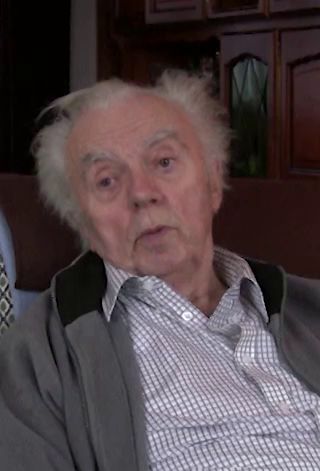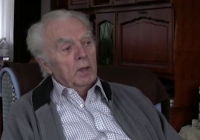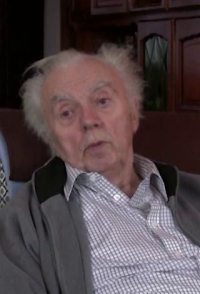With his name and address, he initially authorized the publication of Testimonies

Download image
Jaroslav Vrzala was born on 15 July 1926 in Velehrad. He grew up in Pohořelice near Napajedla. His father was the manager of the Velehrad farm, and his mother took care of the household. Jaroslav had three older brothers and a sister. The family survived the war without major problems. After primary school, Jaroslav graduated from the Higher School of Economics in Přerov. He graduated in 1945, and from September of the same year, worked on the farms of the Olomouc Archbishopric. After the war, he joined the Young People’s Party and became chairman of the district organisation of Young People’s Party members. Immediately after February 1948, he agreed with his friends to leave Czechoslovakia, aiming to join the anti-communist resistance. They crossed the border at Hartmanice in Šumava on 26 March 1948. Through German refugee camps, they reached the French occupation zone, where they signed up to recruit labour in France. Jaroslav Vrzala worked manually for farmers in Normandy and the Vosges, and as a worker in the Renault factory in Paris. In the early 1950s, he became an employee of French intelligence and worked as an interpreter in Germany and Austria. At the same time, he was politically involved in the ranks of the Czechoslovak exile, especially in the People’s Party, but he also got to know personalities from the Council of Free Czechoslovakia. From 1952 to 1960, he was vice-president of the International Union of Young Christian Democrats and co-editor of the monthly magazine “Svobodná mládež”, which reported on the situation in communist countries. As part of the Council of Free Youth of Central and Eastern Europe, he was also involved in organising the protest march through Paris in December 1956, which ended in front of the headquarters of the French Communist Party. He then went to the United States for a time, where he worked manually again. After returning to Paris, he worked as editor of the Czechoslovak section of French radio from 1958. After the Czechoslovak section was closed down, he worked for many years in French broadcasting. In Paris, he also cooperated organizationally with Pavel Tigrid. In the beginning, they used his name and address for the publication of “Svědectví”. He also published the exile magazines “Nové Obzory” and “Rozmach”. He first returned to Czechoslovakia at the end of 1989. In 2000, he received the Jan Masaryk Award for his help to Czechoslovak students after August 1968. Jaroslav Vrzala is also the recipient of the Václav Benda Prize awarded by the Institute for the Study of Totalitarian Regimes in 2010. He also received the award for his participation in the anti-communist resistance.

